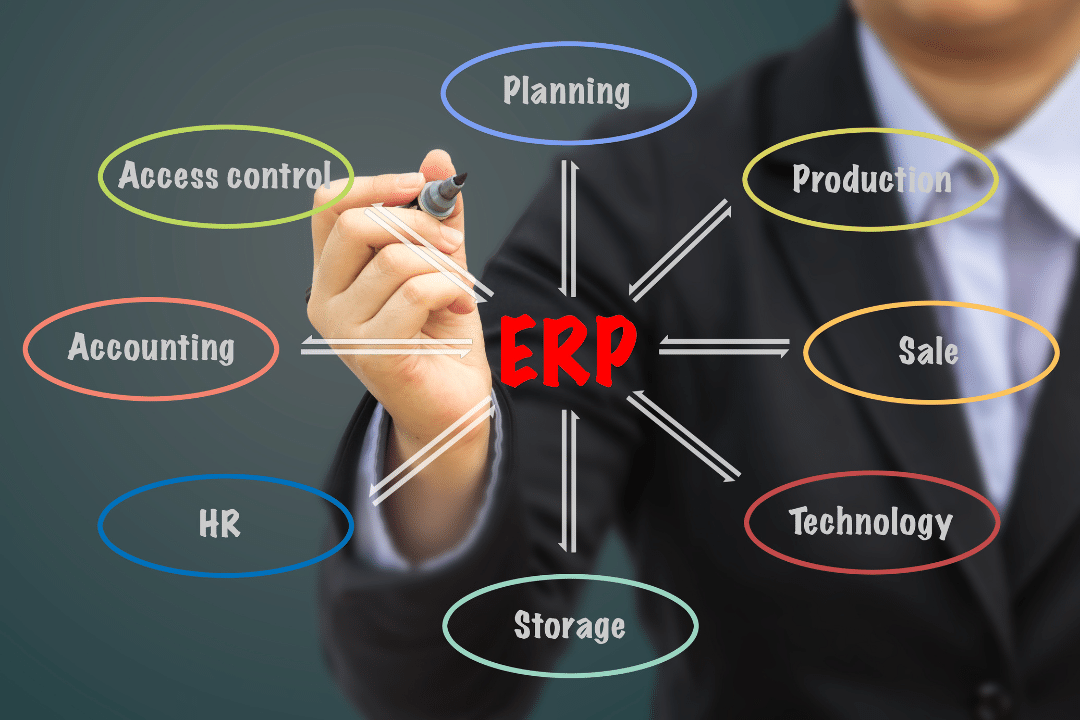Powerful ERP Modules for Your Business Success:
Simplify Operations and Fuel Business Growth with Key ERP Software Modules

ERP software typically includes a set of standard modules that cover key functional areas of a business. These modules can vary slightly depending on the specific ERP system and vendor. Here are some commonly found standard modules in ERP software:
1. Financial Management: This module handles financial transactions, general ledger, accounts payable, accounts receivable, fixed assets, cash management, financial reporting, budgeting, and tax management.
2. Human Resources (HR) Management: The HR module focuses on employee data management, payroll processing, benefits administration, attendance tracking, performance management, recruitment, onboarding, training management, and workforce analytics.
3. Inventory Management: This module involves managing inventory levels, stock control, warehouse management, order fulfilment, demand forecasting, material requirements planning (MRP), and supply chain integration.
4. Supply Chain Management (SCM): The SCM module includes features for procurement, supplier management, purchase orders, vendor performance tracking, order management, demand planning, logistics management, and distribution.
5. Customer Relationship Management (CRM): This module focuses on managing customer interactions, sales force automation, lead management, opportunity tracking, contact management, customer service, marketing campaigns, and customer analytics.
6. Sales and Order Management: This module covers the entire sales process, including quote management, order processing, pricing, contract management, sales analytics, order tracking, and sales performance monitoring.
7. Production Planning and Control: This module handles production planning, capacity planning, bill of materials (BOM), work order management, shop floor control, quality management, production scheduling, and production performance analysis.
8. Procurement: The procurement module deals with the procurement process, supplier selection, purchase requisitions, purchase orders, supplier contracts, RFQs (Request for Quotations), supplier performance tracking, and supplier collaboration.
9. Project Management: This module assists in planning, executing, and monitoring projects. It includes features for project planning, task management, resource allocation, time tracking, project budgeting, collaboration tools, and project reporting.
10. Business Intelligence and Reporting: This module provides tools for data analysis, reporting, and decision support. It includes features for creating custom reports, dashboards, data visualization, data mining, key performance indicators (KPIs), and business analytics.
11. Quality Management: The quality management module focuses on quality control, quality assurance, compliance management, inspection management, non-conformance tracking, and corrective actions.
12. Asset Management: This module helps track and manage physical assets, such as equipment, machinery, vehicles, and facilities. It includes features for asset tracking, maintenance scheduling, preventive maintenance, asset lifecycle management, and maintenance analytics.
13. Marketing and Campaign Management: Some ERP systems include modules for marketing activities, such as campaign planning, lead generation, lead nurturing, email marketing, marketing analytics, and marketing performance tracking.
14. Service Management: This module is dedicated to managing service operations, such as service requests, service orders, service contract management, dispatching, field service management, service-level agreements (SLAs), and service analytics.
These are some of the standard modules commonly found in ERP software. However, it's important to note that the specific modules and functionalities may vary depending on the ERP system and the vendor you choose.
No comments yet. Login to start a new discussion Start a new discussion